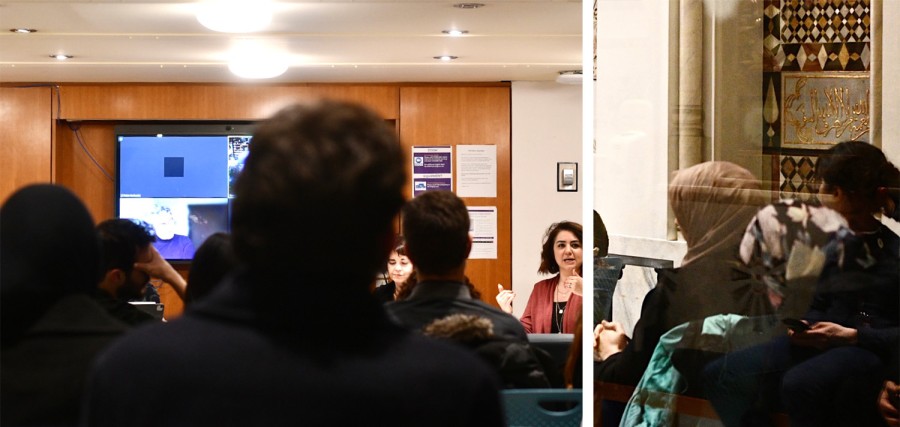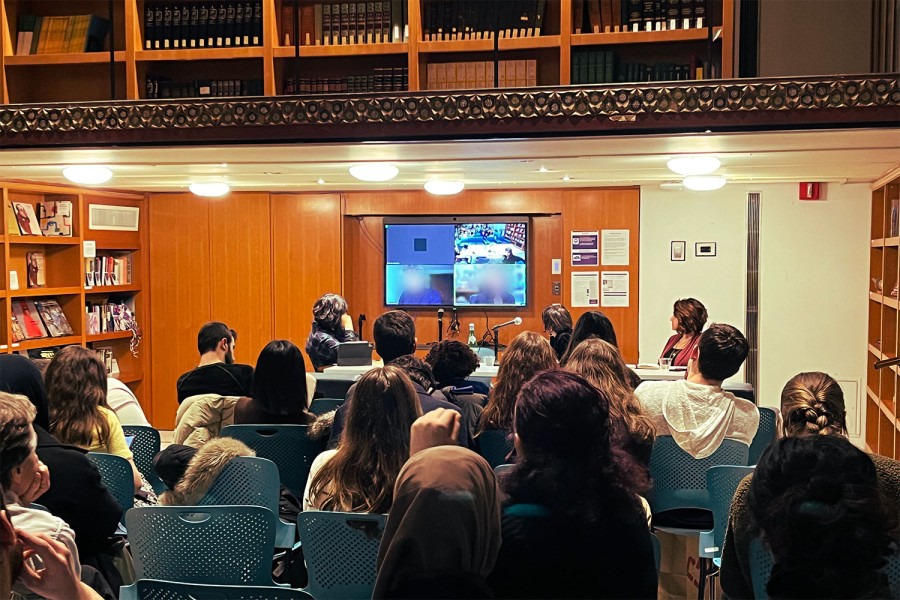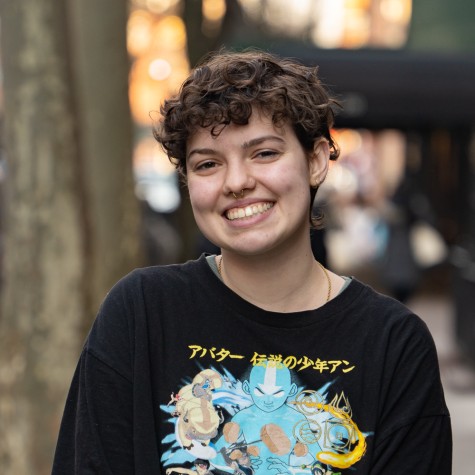NYU profs discuss Turkey and Syria earthquakes at town hall
The NYU Hagop Kevorkian Center for Near Eastern Studies hosted a town hall on Tuesday, Feb. 21 to discuss the recent earthquakes that have devastated Turkey and Syria.
NYU’s Kevorkian Center hosted a town hall on the earthquakes in Turkey and Syria on Feb. 21. (Cora Snow for WSN)
February 22, 2023
In light of another earthquake that worsened the devastation in Turkey and nearby countries earlier this week, a six-person panel of NYU faculty, experts and activists criticized the Turkish government’s handling of the crisis, and racism toward Syrian refugees, at a town hall on Feb. 21.
The town hall, which was hosted by the NYU Hagop Kevorkian Center for Near Eastern Studies, follows two 7.5 and 7.8 magnitude earthquakes that hit southeastern Turkey and northern Syria on Feb. 6. The disasters revealed a lack of building code law enforcement and an inefficient government response. The earthquakes have now taken the lives of more than 47,000 people.
Asli Peker, a panelist and clinical associate professor of international relations at NYU who is originally from Turkey, said the Turkish government’s lack of support during the disaster has worsened its effects. She spoke about footage she saw of disaster victims in the aftermath of the earthquakes.
“I can still hear it in my head: One gentleman cries, screams, ‘Where are the warm hands of the state?” Peker said. “Of course, for a lot of other people in Turkey, the hands of the state have never been warm. If anything, if they’ve felt the hand of the state it has been a slap. It has been intimidating and scary and threatening.”
Onur Arslan, panelist and Ph.D. student at the University of California, Davis, said the Turkish government should have been more prepared for the disaster given that another major earthquake hit the country in 1999. After the 7.6 magnitude earthquake in 1999, which killed more than 17,000 people, the government implemented new building safety laws aimed at preventing future damage in the case of an earthquake. According to Arslan, those laws have failed.
“Since 1999, the earthquake preparedness in Turkey has prioritized not earthquake risk reduction, but the interests of construction companies.” Arslan said. “The disaster law, which was enacted in 2012, has been critical in shaping this priority of profits over public goods.”

Katty Alhayek, an assistant professor at Toronto Metropolitan University and one of the panelists, said that misinformation on social media has caused confusion among victims, leaving some to think that another earthquake is coming soon. Alhayek said that this has made it difficult to communicate with residents and assure them of their safety.
Ayşe Baltacioğlu-Brammer, the director of Ottoman & Turkish Studies at NYU, said the earthquakes have led to the unfair displacement of Syrian refugees and has subjected them to racist treatment from the Turkish government.
“[The government] is trying to create an ‘other’ and trying to put the blame on the ‘other,’” Baltacioğlu-Brammer said. “The Syrians unfortunately have been one of those who have been at the center of targeted attacks.”
Contact Bruna Horvath and Cora Snow at [email protected].


























































































































































